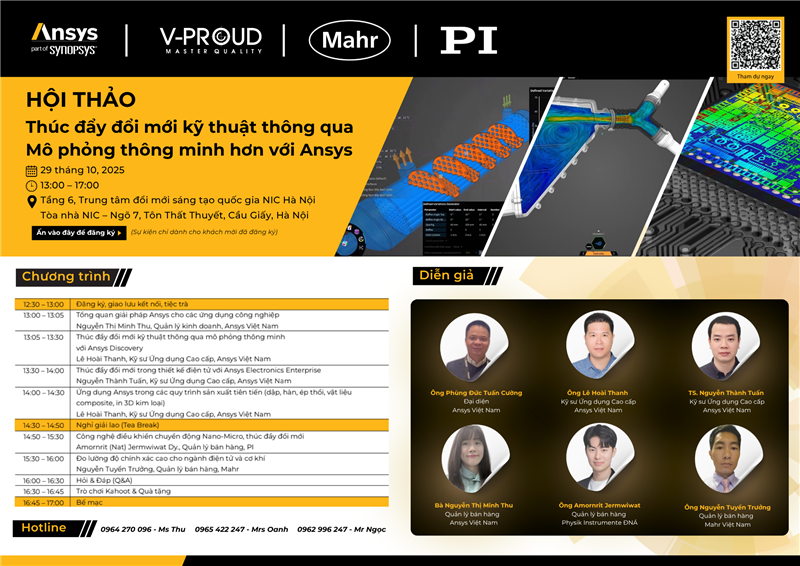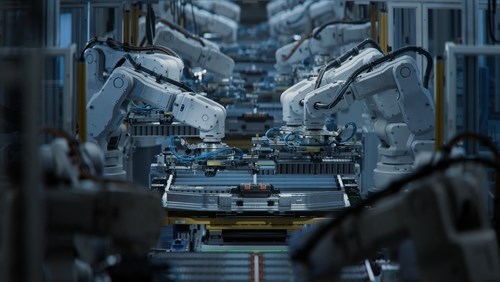
SCANOLOGY has just introduced NimbleTrack Gen2. With upgraded technology, SCANOLOGY's NimbleTrack Gen2 is capable of scanning large and complex areas significantly faster, while maintaining measurement-level accuracy. This is the next generation of the company's mobile optical tracking and 3D scanning systems. SCANOLOGY's NimbleTrack Gen2 is designed to deliver higher performance, especially in speed and measurement range.

A breakthrough opportunity for R&D processes awaits the Vietnamese engineering community. The specialized workshop "Driving Engineering Innovation Through Smart Simulation" organized by ANSYS will take place on October 29, 2025, at the Innovation Hub Building, updating the latest advanced simulation solutions for the manufacturing, electronics design, and Nano-Micro industries.

In the global race to automate manufacturing, China is emerging as a pioneer with the “dark factory” model – where robots and artificial intelligence completely replace humans. Requiring no light or rest, the new generation of factories operate continuously 24/7 with superior precision and efficiency.
SURFACE ENERGY IS A TERM USED TO DESCRIBE THE EXCESS INTERACTION ENERGY THAT EXISTS AT THE SURFACE OF A GIVEN SUBSTRATE.
Surface energies range from high to low depending on their chemical make-up which affects the molecular force of attraction. High surface energy (HSE) means a strong molecular attraction, therefore easier to bond, whereas low surface energy (LSE) means a weak molecular attraction, therefore harder to bond.
.png)
Some Low Surface Energy as Composite, Polypropylene, Polyethylene, Teflon, Other thermoplastic polyolefins are now being used in many industries such as automotive, smart devices because of their advantages:
♦ Durability
♦ Flexibility
♦ Moisture and heat resistance
♦ Cost-effectiveness
However, everything has two sides and LSE Materials is not an exception, the most disadvantage of this material is being difficult to bond which make some difficulties in the assembly process. So as to solve this problem, there are 2 main ways:
1. Choose the right one adhesive which is specially formulated for Low Surface Energy Materials
2. Increase substrate surface energy by chemical/ physical/ mechanical or other new technology as Plasma Surface Treatment. Each method also has its own pros and cons, see more detail here.
(84) 896 555 247